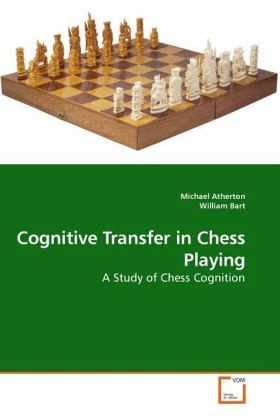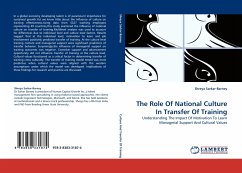
Cognitive Transfer in Chess Playing
A Study of Chess Cognition
Versandkostenfrei!
Versandfertig in 6-10 Tagen
32,99 €
inkl. MwSt.

PAYBACK Punkte
16 °P sammeln!
The game of chess is played by millions of people worldwide and provides an excellent setting in which to study how the human mind operates. One topic in human learning that can be studied using chess is transfer, i.e., the ability to apply what we learn in one situation to novel situations. This volume is a report on a cognitive psychological study of transfer within the context of chess. Participants were placed into two groups, with members in one group (Principle) receiving a conceptual explanation of two checkmate strategies and members in the second group (Case) receiving descriptions of...
The game of chess is played by millions of people worldwide and provides an excellent setting in which to study how the human mind operates. One topic in human learning that can be studied using chess is transfer, i.e., the ability to apply what we learn in one situation to novel situations. This volume is a report on a cognitive psychological study of transfer within the context of chess. Participants were placed into two groups, with members in one group (Principle) receiving a conceptual explanation of two checkmate strategies and members in the second group (Case) receiving descriptions of the necessary moves for the two checkmate strategies. Participants were also classified as Novices or Experts based on their performances on four checkmate problems. Participants were then given various cognitive tasks including chess problems serving as transfer tasks. Analysis of participant responses indicated a rather surprising interaction among participant task performance, level of task difficulty, participant skill level, and instructional method. Interpretation of the results made use of the ideas of Vygotsky and concluded with an innovative view of learning.












